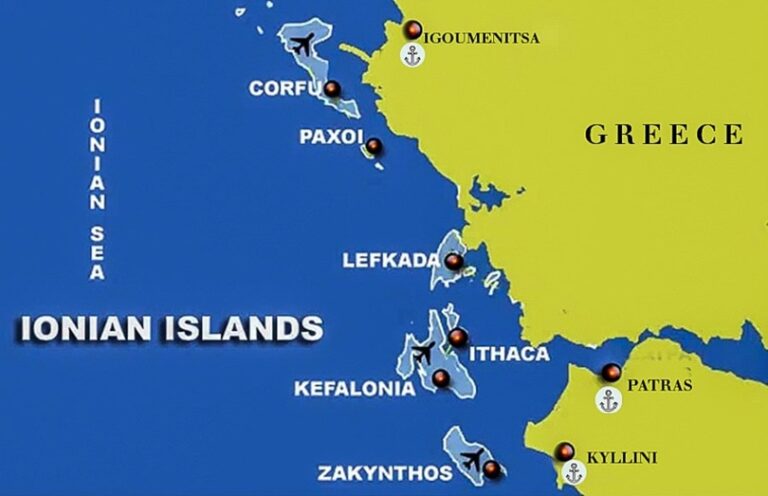Thailand’s picturesque landscapes, vibrant shopping districts, and stunning temples are once again brimming with tourists, with a particular focus on extending a VIP-like reception to Chinese vacationers through a recently implemented visa-free program. The country’s newly appointed Prime Minister, Srettha Thavisin, has unveiled a visa-free policy catering to Chinese and Kazakh tourists, effective from September 25 to February 24 of the following year. This strategic move underscores Thailand’s commitment to revitalizing its economy, emphasizing the significance of the recovery of the tourism sector.
This favorable policy coincides impeccably with China’s “Golden Week” holiday season, which converges around National Day on October 1. This year’s Golden Week aligns with the Mid-Autumn Festival, forming a 10-day travel extravaganza spanning from September 29 to October 8. It marks one of the initial holiday periods post-Covid-19 pandemic where Chinese travelers can explore without any constraints. Notably, Chinese visitors arriving from Shanghai experienced a warm reception at Bangkok’s Suvarnabhumi Airport as they were presented with gifts, courtesy of Prime Minister Srettha and tourism ministers, on the first day the visa-free policy went into effect. Srettha expressed optimism regarding the policy’s potential to significantly boost the nation’s economy, urging Chinese tourists to explore not only major cities like Chiang Mai, Bangkok, Pattaya, and Phuket but also smaller towns, encouraging extended stays and increased spending. Beijing responded warmly to this week’s reception, with China’s Foreign Minister Wang Wenbin expressing appreciation during a press conference on Tuesday.
In 2019, China stood as Thailand’s primary tourism source, contributing nearly 11 million visitors to the Southeast Asian nation. This substantial influx represented over a quarter of all international arrivals, highlighting the significance of Chinese tourism before the global tourist industry faced a dramatic decline due to the Covid-19 pandemic.
Fast forward to 2023, and the situation has undergone a striking transformation. According to statistics provided by the Tourism Authority of Thailand, a mere 2.2 million Chinese tourists graced Thailand with their presence from January to September 10 of this year, underscoring the profound contrast in visitation figures compared to the pre-pandemic era.
Southeast Asian nations had initially harbored high expectations of a robust revival in international travel to bolster their tourism sectors post-pandemic, buoyed by China’s relaxation of travel restrictions early in 2023. However, they had to temper their optimism in light of a sluggish Chinese economy, a devalued yuan, and grim unemployment figures. Regional travel hubs had to recalibrate their expectations and prepare for a protracted path to recovery.
Gary Bowerman, the founder of Check-in Asia, a research and marketing company focused on tourism, noted that the new visa-exemption strategy not only influences the Golden Week peak seasons but also anticipates the upcoming Christmas and Lunar New Year holiday periods. Bowerman emphasized the intensifying competition among countries in the region to attract Chinese tourists, requiring streamlined travel processes. He pointed out that the Chinese outbound travel industry is in a transitional phase, with evolving travel trends and preferences influenced by the pandemic, and more Chinese consumers seeking unique experiences on tighter budgets.
While China’s domestic tourism boomed last year due to Covid restrictions preventing leisure travel abroad, a shift is occurring. Even amid economic challenges, those with the means to travel are increasingly opting for overseas escapes. For instance, a tech worker named Huang, sharing her plans on China’s equivalent of Instagram, Xiaohongshu, mentioned that she previously explored Sichuan province during the long October holiday but is now venturing to Thailand for a surfing adventure. Outbound international travel bookings have surged nearly 20-fold compared to the same holiday period last year, according to Trip.com, which operates China’s largest travel booking platform, Ctrip.
Following the September 13 announcement of the visa-free scheme, hotel bookings for Thailand skyrocketed by 6,220% compared to the same period last year, according to Trip.com. Thailand is expected to be the leading destination for outbound Chinese travelers, followed closely by South Korea, Malaysia, Singapore, Australia, and the United Kingdom. During the Golden Week, more than 21 million passengers will take to the skies in China, with an average of 17,000 daily outbound international flights and another 14,000 domestic flights per day, according to Jin Junhao, a deputy director at the Civil Aviation Administration of China. Meanwhile, trains are experiencing unprecedented demand, facilitating travel across China’s diverse locales. China Railway estimates a staggering 190 million railway trips during the 12-day travel rush from September 27 to October 8, surpassing both last year’s 72 million trips and the 138 million trips made in 2019 before the pandemic.
Despite these surging numbers, China’s outbound international flight capacity remains around 50% lower than pre-pandemic levels, resulting in higher international flight fares compared to 2019, attributed to limited available capacity, as noted by Joanna Lu, head of consultancy for Asia at Ascend by Cirium.
Amidst the evolving landscape of post-pandemic travel, Chinese tourists now seek novel experiences without breaking the bank, according to Dr. Wolfgang Georg Arlt, CEO of the China Outbound Tourism Research Institute (COTRI). He notes a shift towards value-for-money choices among travelers, who, even while leisure-traveling, aim to incorporate elements of business, health, education, and family time into their journeys. This altered travel approach highlights a demand for versatile and cost-effective options.
In the lead-up to the visa-free policy announcement, Chinese tourists had been slow to return to Thailand. Thailand’s Ministry of Tourism and Sports reported that, for the first time in a decade, China was absent from the list of Thailand’s top tourist source markets in the first seven months of 2023.
Factors contributing to this trend included social media rumors suggesting potential risks in Thailand, such as kidnapping and forced labor in scam centers in neighboring countries. The release of the movie “No More Bets,” set in an unspecified Southeast Asian nation and featuring a plot involving people lured into scam factories, further exacerbated these concerns.
A social media hashtag translating to “why people are unwilling to travel to Thailand” gained significant traction on Weibo, with some users expressing fear of falling victim to scams and others citing lengthy visa processes.
To regain the trust of Chinese consumers, the Thai government has sought to dispel these misconceptions, emphasizing that such illicit activities occur in Myanmar and Cambodia, not within Thailand’s borders.
Despite the earlier subdued arrival figures, Thailand’s tourism industry remains optimistic about a resurgence as Chinese travelers prepare for upcoming holiday periods, with tour companies gearing up for the expected surge.
(Source: Kathleen Magramo | Kocha Olarn | Berry Wang | Carina Cheng | CNN)







